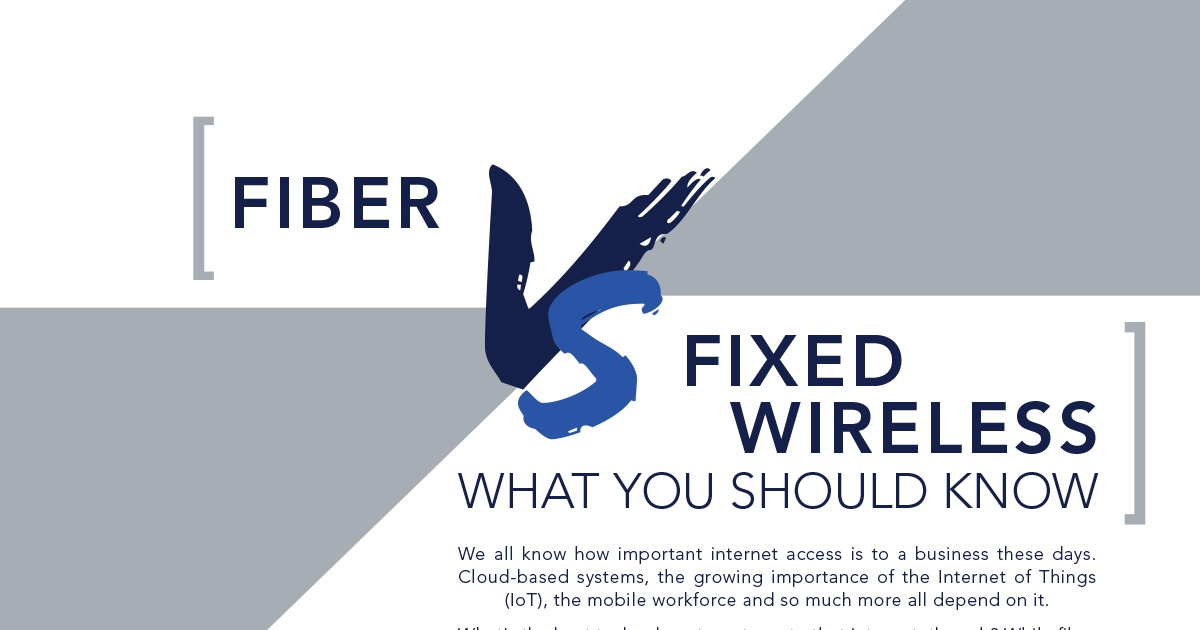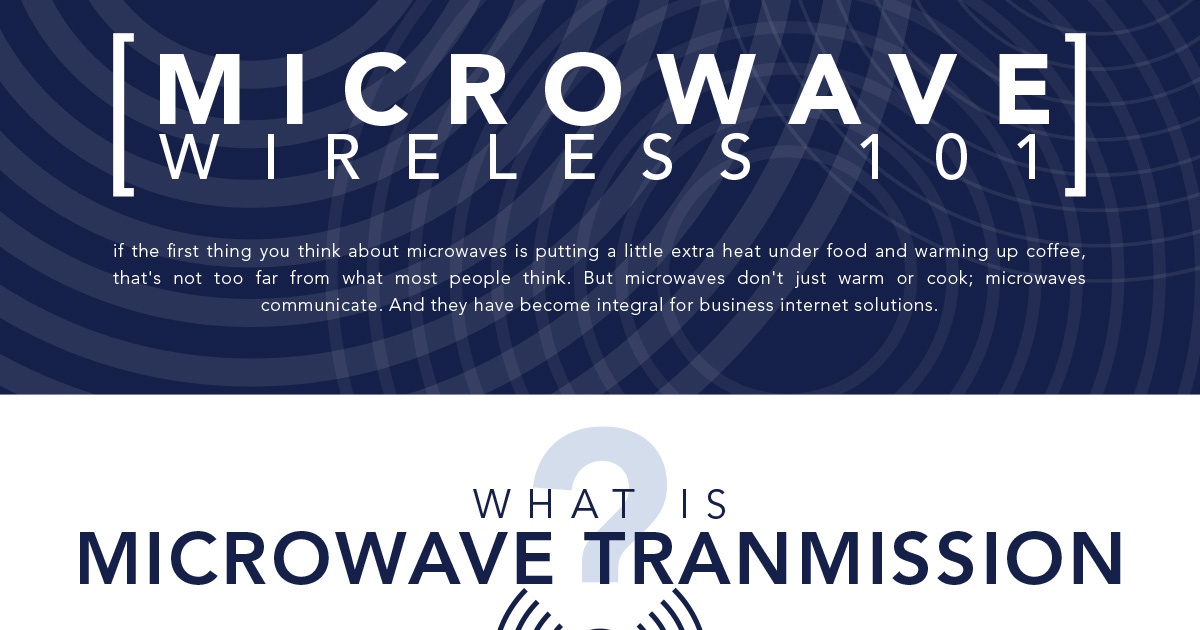Your internet connection is one of the most vital business decisions you can make. There's just no two ways about it; from video conferences to emails to research to even a cute cat video break, you need the right kind of internet connection. Getting the most out of internet providers, therefore, becomes crucial to overall operations. But what should you be looking for?
MHO Networks
Recent Posts
Meeting the Vital Connection: What Internet Providers Should Do for You
Topics: Bandwidth, Downtime, Security, Internet Service Provider (ISP)
Making a Better Network: Speed, Latency, Cloud Adoption
The notion of a better network is different for most everybody, but some common facets emerge. Issues of speed and latency are naturally important, but so too is the issue of cloud adoption rates. These issues all go hand-in-hand to make a better network, and where one improves, the other two are likely to improve as well.
Topics: Network, Cloud, SD-WAN, firmware, Low Latency
WAN Optimization in the SD-WAN Era: Should You Bother? Yes.
Software-defined wide area networking (SD-WAN) has fundamentally changed networking technology in a host of ways. It's changed so much, in fact, that some think WAN optimization itself is a dead art, lost forever against the greater efficiency of SD-WAN. That's not strictly true, but not too far off. There are still ways to optimize a WAN, thanks in large part to SD-WAN itself.
Topics: Network, WAN (Wide Area Network), SD-WAN, WAN Optimization, Internet Connection
The WAN Under Fire: More Demand, More Call for Improvement
Is it time to get rid of the wide-area network (WAN)? Some would say it is, but almost as many would say that it's just time for a better WAN. Making a WAN better calls for some fairly serious changes, but those changes can make the system more ready to take on the ever-increasing demands of modern business.
Topics: Bandwidth, Network, WAN (Wide Area Network), IoT (Internet of Things), SDN
[Infographic]: Fiber Vs. Fixed Wireless: What You Should Know
For all businesses, Internet access is crucial. It can, however, be difficult to decide on the form of Internet access that is best for your company. While some businesses often default to fiber, fixed wireless is an option that should be more closely considered.
Topics: Fixed Wireless, Fiber, Low Latency, Internet Connection, Infographic
Microwaves do more than heat up food -- they can be used to communicate. And microwave transmission technology is an excellent way for businesses to connect to the internet and take advantage of cloud-based services. The benefits don't stop there, however.
Topics: Bandwidth, Cloud, Connectivity, microwave transmission, Infographic
Unreliable Internet Connections Mean More than Just Downtime
Network downtime is, on a certain level, unavoidable. We do what we can to minimize and protect against it, but it still happens. With an Information Technology Intelligence Consulting (ITIC) Research study finding that an hour of downtime costs 98% of businesses at least $100,000, it's worth protecting against. Downtime doesn't just cost that six-figure hit, however...it costs a lot more than that.
Topics: Internet Access, Connectivity
5 Ways Fixed Wireless Can Answer Business Connectivity Problems
Fixed wireless offers several advantages that make it able to address many of the connectivity problems we see in business.
Topics: Business Internet
Digital Transformation Goes Nowhere without the Network
Digital transformation; as the name suggests, it's a complete transformation of even the most basic business and organizational processes. It's taking businesses from “the way we've always done it” to “how we'll be doing it tomorrow.” Yet we don't make that leap in isolation. We need the right kind of network to make our transformation truly occur.
Topics: Internet Access, Security, Low Latency
Fixed Wireless and Mobile Internet: What's the Difference?
What is Fixed Wireless?
Fixed wireless service is a comparatively new technology that operates commonly on radio transmission to connect established, wired communications systems. Point-to-point microwave transmissions are also under the umbrella of fixed wireless, and are used to bypass many of the obstacles terrestrial internet connections have.
What is Mobile Internet?
Mobile internet is the older, more familiar mobile technology, one that refers mainly to internet access delivered over a cellular network. It uses the same cell towers that handle voice traffic to send data to and from a mobile device. It's specifically designed for flexibility, and essentially works, as the name suggests, like a portable, mobile internet connection.
So What's the Difference Between Mobile Internet and Fixed Wireless?
The two look similar, and ultimately take you to the same internet, so it would be easy to mistake them. There's a clear difference in how the two work, however, as well as some differences in points of performance.
- Latency. Mobile internet has a much greater latency than fixed wireless. It takes longer for the signal to run the circuit of cellular towers than it does the comparatively point-to-point access provided by fixed wireless.
- Speed. Fixed wireless is much faster than mobile internet, for much the same reason as its low latency. The method of data provision is faster with fixed wireless, so the connections are faster in turn.
- Bandwidth. Fixed wireless commonly offers much greater bandwidth access than mobile bandwidth, owing mainly to the nature of the connection. Those cell towers are used by everyone in the vicinity, while the point-to-point connection of fixed wireless is generally only used by one party.
- Portability. Mobile internet's big advantage is its portability. It goes most everywhere voice traffic goes. Fixed wireless, meanwhile, requires a line-of-sight connection, or close to it, to produce a connection. Thus, fixed wireless is commonly seen in denser traffic areas.
How Do I Get Started With Fixed Wireless?
When you're ready to get started with fixed wireless, the place to start is with MHO Networks . We're a well-known and widely-used provider of fixed wireless, as well as metro ethernet and other options that can offer the speed, bandwidth, and latency. So give us a call and let us help you get started with a powerful new option in internet access.
Topics: Mobile










